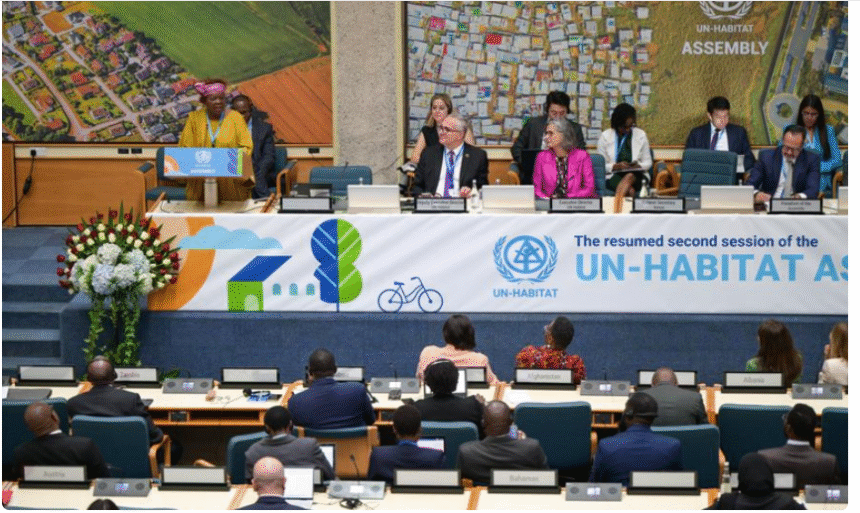By Peter Halima
Nairobi, Kenya – The United Nations Habitat Assembly concluded its resumed second session in Nairobi, Kenya, with the unanimous adoption of a groundbreaking strategic plan aimed at addressing the escalating global housing crisis. The two-day meeting, which drew over 1,300 delegates including ministers, city mayors, urban planners, innovators, and entrepreneurs, marked a pivotal moment in international efforts towards sustainable urbanization and human settlement.
The UN-Habitat Assembly, the world’s highest decision-making body on these issues, convenes every four years and is composed of all 193 UN member states. This year’s gathering focused intensely on developing a roadmap for tackling the growing challenges of affordable housing and sustainable urban development.
Kenyan President William Ruto lauded the consensus-based adoption of the United Nations Human Settlements Program’s (UN-Habitat) Strategic Plan 2026-2029. He emphasized its crucial role in guiding the creation of climate-smart and inclusive cities. “The adoption of this strategic plan reaffirms our commitment to urban renewal through equitable and adequate access to housing,” President Ruto stated, further urging UN member states to champion affordable housing initiatives globally.
Beyond the adoption of the strategic plan, the assembly also saw the election of Malaysia and the United Arab Emirates (UAE) to co-preside over the assembly from 2025 to 2029. Additionally, 36 members were elected to the Executive Board of UN-Habitat.
Looking ahead, it was announced that the 13th session of the World Urban Forum will be held in Baku, Azerbaijan, from May 17-22, 2026. The forum, themed “Housing the world: Safe and resilient cities and communities,” will provide a platform for further discussion and collaboration on addressing the global housing challenge.
The UN-Habitat’s Strategic Plan aims to dramatically improve access to housing, land, and essential services like clean drinking water and sanitation. It is closely aligned with the global push to transform cities into hubs of green innovation, prosperity, and resilience.
Anaclaudia Rossbach, Executive Director of UN-Habitat, underscored the plan’s ambitious vision for transforming cities through initiatives like upgrading informal settlements, improving land governance, accelerating climate action, and eradicating poverty.
Rossbach further emphasized the critical role of political will, innovative financing, partnerships, and the strategic application of technology in ensuring the swift and effective implementation of the plan, guaranteeing that urbanization is both resilient and sustainable.
The newly adopted strategy presents a clear and detailed blueprint for achieving urban renewal by improving access to decent shelter, safe drinking water, effective sanitation, and responsible waste management. The consensus reached in Nairobi signals a renewed global commitment to tackling the housing crisis and building a more sustainable and equitable urban future.









